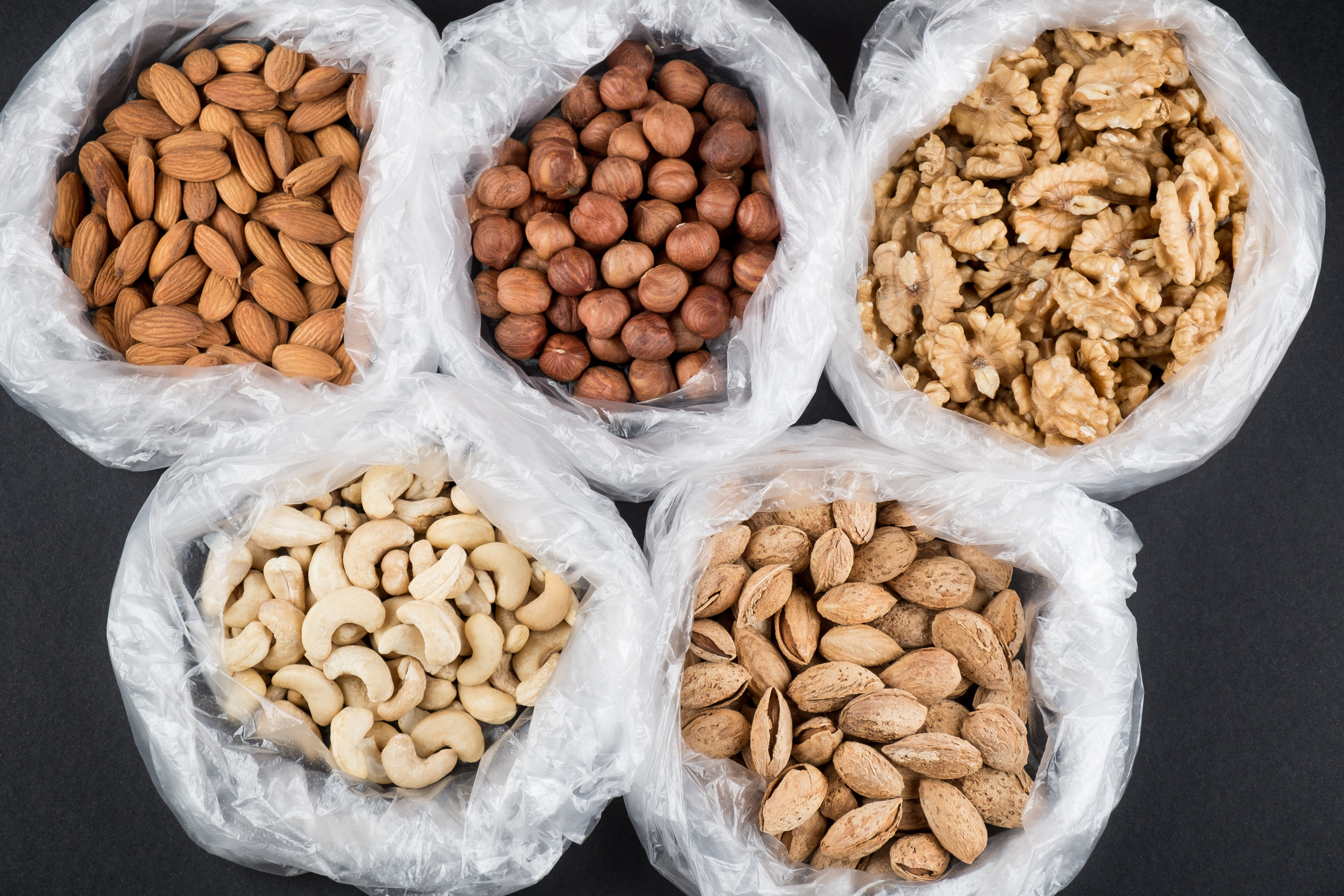
Image Source: 123rf.com
Buying in bulk is often praised as a smart way to save money, reduce shopping trips, and keep your pantry stocked. But not every product benefits from sitting in large quantities on your shelves. Some items have shorter shelf lives than you might expect, and purchasing them in bulk can actually lead to waste rather than savings. Food spoilage, quality loss, and expiration dates all play a role in making certain bulk buys less practical. Knowing which products expire quickly can help you make better purchasing decisions and avoid throwing money away.
1. Cooking Oils
Cooking oils like vegetable, canola, and olive oil may seem like great bulk purchases, but they can go rancid faster than expected. Once opened, exposure to air, light, and heat speeds up the oxidation process, altering flavor and nutritional quality. Even sealed bottles have a shelf life of about a year, and less for delicate oils like walnut or flaxseed oil. Buying large containers may lead to stale or unpleasant-tasting oil long before you can use it all. Instead, purchase smaller bottles to ensure freshness for every meal.
2. Ground Coffee
Coffee lovers might be tempted to buy giant bags of ground coffee, but freshness fades quickly after opening. Oxygen and moisture exposure cause the flavorful oils in coffee to break down, leading to a flat, bitter taste. Most ground coffee is best within two to four weeks of opening, making bulk bags impractical unless you brew large amounts daily. Whole beans last longer but still degrade over time, even in airtight storage. Smaller packages ensure you enjoy each cup at its peak flavor.
3. Whole Grain Flours
Whole-grain flours like whole wheat or rye contain natural oils that can turn rancid faster than refined white flour. When stored improperly, they can spoil in just a few months, especially in warm or humid environments. Freezing can extend their shelf life, but this takes up valuable freezer space that many kitchens can’t spare. Buying in bulk often results in stale flour and baked goods with an off taste. For best results, purchase amounts you can use within a couple of months.
4. Spices and Seasonings
Spices don’t usually “go bad” in a way that makes them unsafe, but their potency fades much faster than many people realize. Ground spices, in particular, lose flavor after six months to a year, leaving dishes less aromatic and tasty. Bulk containers may seem like a bargain, but by the time you reach the bottom, the spice can be a shadow of its former self. Storing them in airtight containers away from heat and light can help—but won’t stop the inevitable flavor loss. Smaller quantities keep your cooking vibrant and flavorful.
5. Brown Rice
Brown rice is considered a healthy pantry staple, but it has a surprisingly short shelf life compared to white rice. The natural oils in the bran layer cause it to spoil within six months at room temperature. In warmer climates, it can turn rancid even faster, developing an unpleasant odor and taste. Refrigeration or freezing can extend its life, but these methods aren’t always practical for bulk quantities. Buying smaller bags ensures you’re always cooking with fresh, nutrient-rich rice.
6. Nuts and Seeds
Nuts and seeds are nutrient powerhouses, but they’re also high in oils that spoil quickly. In bulk, they can go rancid within months, especially if stored in a warm pantry. Rancid nuts not only taste bad but also lose nutritional value and can cause digestive discomfort. Freezing them can extend freshness, but constant thawing and refreezing can affect texture. Smaller packages or buying from stores with high turnover will give you fresher, better-tasting snacks and baking ingredients.
Bulk Buying Works Best When You Match Quantity to Shelf Life
While bulk buying has its perks, it’s not a one-size-fits-all strategy. Products with high oil content, delicate flavors, or short shelf lives are often better purchased in smaller amounts to preserve quality and reduce waste. The key is to match your buying habits to your actual consumption rate, considering how quickly each item is used and how long it stays fresh. By being selective with bulk purchases, you can save money without sacrificing flavor or nutrition. In the end, smart shopping is about value—and value comes from freshness as much as price.
Have you ever bought a bulk item that went bad before you could finish it? Share your experience and tips in the comments.
Read More
